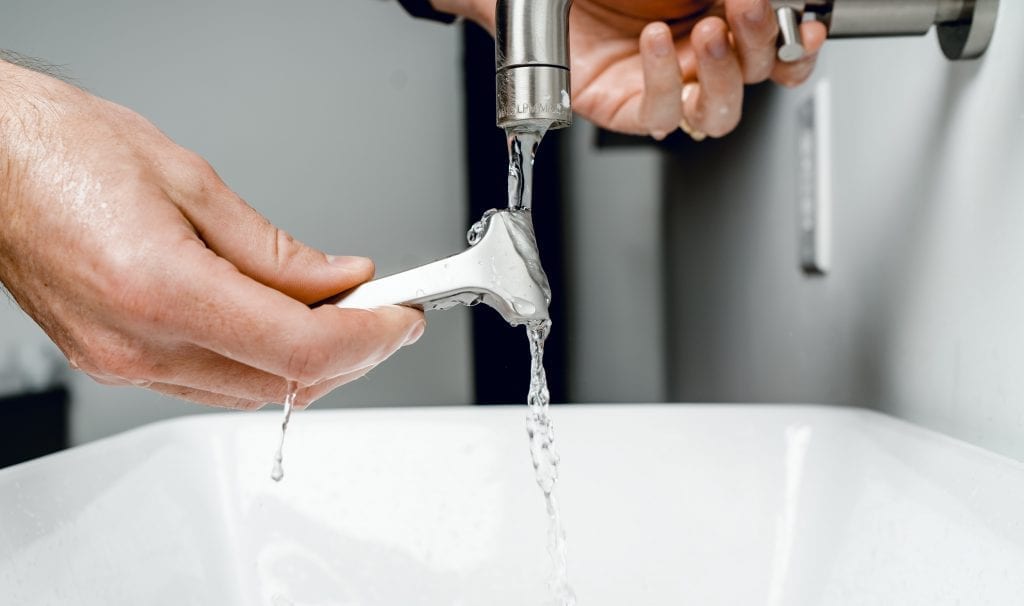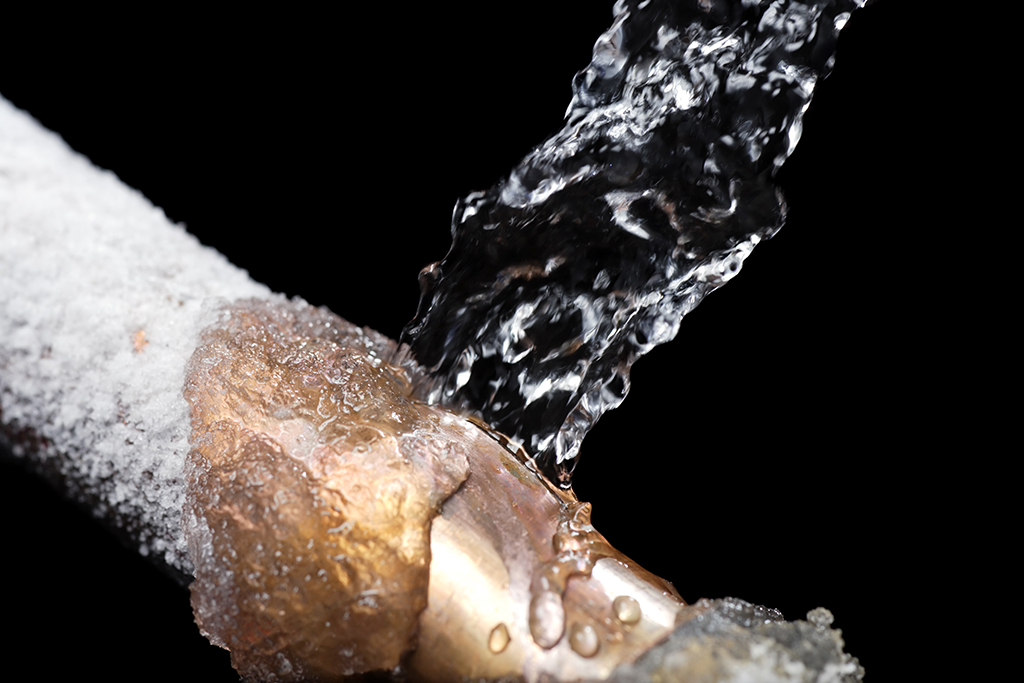This article below involving Prevent Freezing and Bursting Pipes is extremely insightful. You should look it over.

All homeowners who reside in warm climates need to do their best to winterize their pipes. It is something you should do during autumn before deep winter really starts. Failure to do so can mean catastrophe like frozen, cracked, or burst pipelines. Right here are some helpful winterizing hacks to maintain your plumbing system secured even if the climate outside is terrible.
Turn On the Faucets
When the temperature drops and it appears as if the freezing temperature will last, it will certainly help to turn on your water both inside your home and also outdoors. This will maintain the water flowing via your plumbing systems. You'll end up losing gallons of water this way.
Open Up Closet Doors Hiding Plumbing
When it's cold outside, it would be useful to open up cabinet doors that are concealing your pipes. They might be somewhere in your cooking area or shower room. This will certainly enable the warm air from your heater to circulate there. As a result, you prevent these exposed pipes from cold. Doing this little trick can keep your pipelines warm as well as limit the potentially dangerous end results of freezing temperatures.
Require Time to Wrap Exposed Pipeline
One awesome and also easy hack to warm up frigid pipes is to wrap them with cozy towels. You can cover them first with towels. After securing them in place, you can pour boiling water on the towels. Do it gradually to let the towels take in the fluid. You can additionally make use of pre-soaked towels in hot water, simply do not forget to use protective handwear covers to protect your hands from the heat.
Attempt a Hair Clothes Dryer or Warm Gun
When your pipelines are nearly freezing, your reliable hair dryer or heat gun is a blessing. If the warm towels do not help dislodge any clearing up ice in your pipes, bowling hot air straight into them might help. You might end up destructive your pipelines while trying to thaw the ice.
Shut down Water When Pipelines are Frozen
If you observe that your pipes are completely frozen or nearly nearing that phase, turn off the major water valve instantly. You will normally discover this in your cellar or laundry room near the heating unit or the front wall closest to the street. Transform it off right away to avoid further damages.
Don't fail to remember to close exterior water resources, as well, such as your connection for the garden residence. Doing this will prevent extra water from filling your plumbing system. With more water, even more ice will load up, which will eventually lead to burst pipelines. If you are uncertain about the state of your pipelines this winter season, it is best to call a specialist plumber for an evaluation. Taking this positive method can conserve you hundreds of dollars out of commission.
All property owners that live in temperate climates have to do their ideal to winterize their pipes. Failure to do so can lead to catastrophe like icy, cracked, or burst pipes. If the hot towels do not aid remove any working out ice in your pipelines, bowling warm air straight right into them may aid. Transform off the major water valve instantly if you notice that your pipes are entirely frozen or almost nearing that stage. With even more water, more ice will load up, which will at some point lead to burst pipelines.
PREVENT YOUR PIPES FROM FREEZING THIS WINTER
A Leading Cause of Property Damage
When the weather is taking a deep nose dive into the cold dreary days, the risk of your pipes freezing and potentially bursting skyrockets. Unfortunately, during these cold dreary months, burst pipes are the most common denominator for property damage. The pipes that are most at the risk are those that are in areas where it is most cold in your home. For instance, pipes located in interior places such as basements, attics, and your garage. Unfortunately, that doesn’t mean that the pipes running through your cabinets or exterior walls can’t freeze. Good news, however, is that you can do things to help prevent pipes from freezing.
How to Prevent Pipes From Freezing
Once the temperature starts to drop during the winter, you should be taking the proper measures needed to ensure that your pipes stay warm and that there is circulation of water through them. Some steps that experts may recommend could go against your better judgement when it comes to saving water and heat. However, it would go without saying that when expenses are compared, damaged pipes could put a bigger dent in your wallet than a water bill.
What Can I Do?
- Keep your garage door closed. This is very important, especially if you have water supply lines running through your garage.
- Open your kitchen and bathroom cabinets to allow warm air to circulate through them.
- Allow air circulation throughout your home. Keeping the interior doors open will once again allow the warm air to circulate inside your home.
- Ensure your thermostat is running the same temperature throughout the night and day.
- If you plan to be away from home during the cold months, set your temperature no lower than 55° F. This should provide enough heat to keep the pipes warm and prevent any remaining water inside the pipes from freezing.
- For more of a long-term solution, add insulation to attics, basement, and other crawl spaces around your home.
- By allowing your faucet to drip, it will alleviate pressure in the system. This is important because the pressure that is created between the blockage and the faucet can potentially cause the pipes to burst. Allowing the faucet to drip will prevent the pressure from building up, therefore keeping the pipes from bursting.
- Seal any cracks, openings, and crawl spaces around your home to prevent cold air from coming inside. This keeps your pipes-not to mention your home-warmer and less susceptible to issues caused by freezing temperatures.
- For the pipes in your home that are easily accessible, applying electrical tape to them might prevent them from freezing over. This is a quick fix, as you can apply the tape directly to the pipe. There are two options for heating tapes. One turns on and off by itself when it senses heat is needed. The other type of heating tape needs to be applied when heat is needed and removed when not necessary. If you have exposed pipes in your home, you can check this website to take a look at a few options that would be available at a shop near you.

I was guided to that article on How to Prevent Frozen Pipes from a friend on our other website. Are you aware of someone else who is enthusiastic about the niche? Feel free to share it. We enjoy reading our article about Winterizing Your Pipes.
Further Details
Comments on “Avoid Pipe Bursts in Cold Weather: 5 Effective Winterizing Hacks”